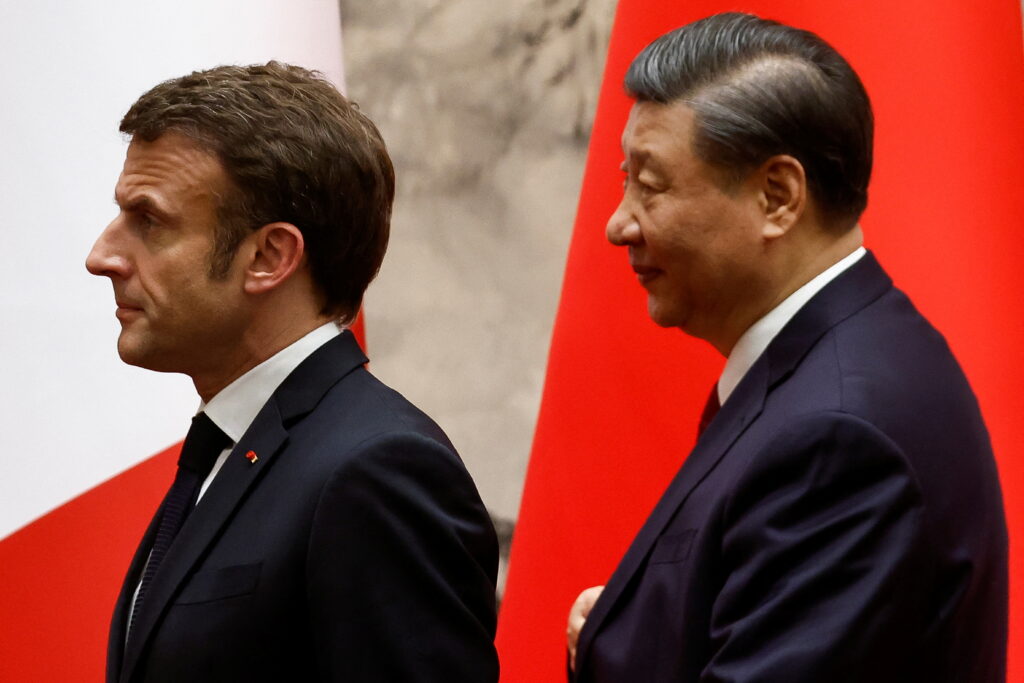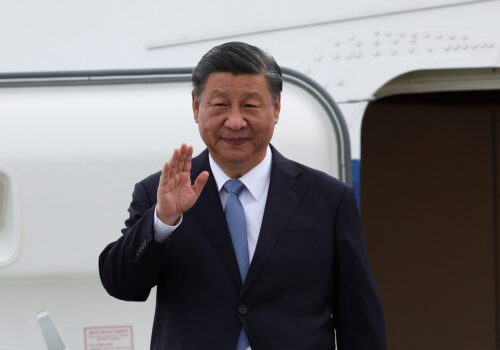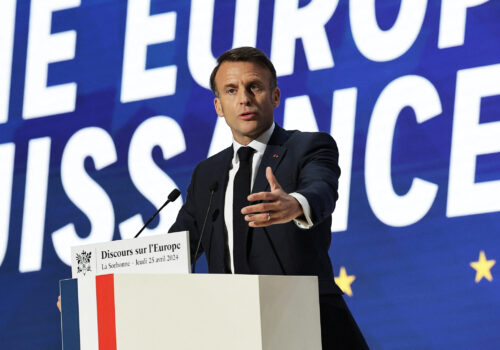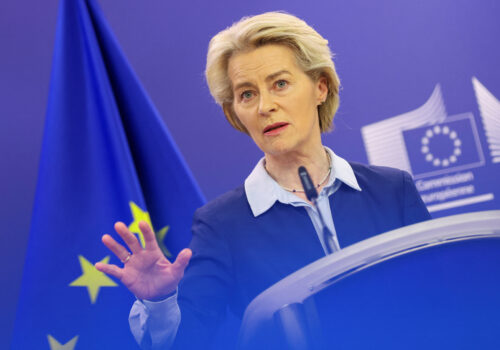Chinese leader Xi Jinping’s trip to Europe next week marks “a moment of truth” for China’s relations with the continent, coming at a time of increased tension over matters ranging from espionage and electric vehicles to Beijing’s support for Russia’s war effort.
That’s the view of Jörn Fleck, who runs the Atlantic Council’s Europe Center, reckoning that both sides have some soul-searching to do before they’ll be able to restore trust and better manage their growing list of disputes.
Europe’s increased concerns about China’s malign influence on politics and business across the continent form the backdrop for the six-day trip, even as many countries are just as eager to safeguard and expand trade and investment.
Several recent arrests and charges of espionage have given Europeans a glimpse into China’s shadowy activities. Last week alone, six individuals in three separate cases, four in Germany and two in the United Kingdom, were charged with spying on behalf of China.
Last month, European Union (EU) competition regulators raided the Polish and Dutch offices of Chinese security company Nuctech, which is a leader in providing European airport security scanning devices. (US authorities blacklisted Nuctech in 2020.)
That is part of a growing European Commission crackdown on companies believed to be receiving unfair Chinese state subsidies. European officials, like their US counterparts, are increasingly concerned about China exporting its excess capacity. EU Trade Commissioner Valdis Dombrovskis told POLITICO’s Brussels Playbook this week that the EU investigation of Chinese subsidies for electric vehicles is “advancing,” and he hinted that new tariffs could come before summer.
On the other hand, the Wall Street Journal reported over the weekend that Germany, with its own stagnating growth as context, is considering rolling back plans to increase government scrutiny of Chinese investments through a foreign investment-screening law.
That brings us to the “moment of truth.”
For the European Union, it’s whether its members can remain united in addressing Beijing’s malign actions, while at the same time not unnecessarily losing economic opportunity. On that score, it’s a good sign that French President Emmanuel Macron has invited European Commission President Ursula von der Leyen to join him in Paris, where he will do a solo and a joint meeting with Xi.
But across Europe and in Washington the French president’s messaging will also be watched closely for any talk of a European “third way,” which would undermine European and transatlantic unity.
For China, the moment of truth is whether Xi recognizes that it’s his country’s own actions that have Europe on edge toward Beijing. The Chinese leader could address that through reducing his support for Russia’s war effort, addressing manufacturing overcapacity, reining in industrial and political spying, and ending efforts to divide and conquer the continent.
In that respect, how Xi has chosen his European stops is concerning, with France being followed by Serbia and Hungary, two countries that have been coziest with China. Hungary, which just marked twenty years as an EU member, has been opposed to Brussels’ tougher approach to China and has willingly played into Beijing’s divide-and-conquer tactics.
With Xi unlikely to mend his ways in Europe, it will take all the unity Europe can muster to convince him otherwise.
Frederick Kempe is president and chief executive officer of the Atlantic Council. You can follow him on Twitter: @FredKempe.
This edition is part of Frederick Kempe’s Inflection Points Today newsletter, a column of quick-hit insights on a world in transition. To receive this newsletter throughout the week, sign up here.
Further reading
Thu, May 2, 2024
What to look for as Xi Jinping visits France, Serbia, and Hungary
New Atlanticist By
The Chinese leader is visiting Europe May 5-10, just as Beijing’s relationship with the West seems to be narrowing.
Mon, Apr 29, 2024
‘Our Europe is mortal. It can die.’ Decoding Macron’s Sorbonne speech.
New Atlanticist By Gérard Araud
The French president recently delivered a nearly two-hour speech outlining an ambitious agenda for Europe.
Sun, Apr 7, 2024
Ursula von der Leyen set Europe’s ‘de-risking’ in motion. What’s the status one year later?
New Atlanticist By Jörn Fleck, Josh Lipsky, David O. Shullman
The European Commission president presented a new economic vision for the European Union’s relationship with China in March 2023.
Image: Chinese President Xi Jinping and French President Emmanuel Macron look on at the Great Hall of the People, in Beijing, China, April 6, 2023. REUTERS/Gonzalo Fuentes



